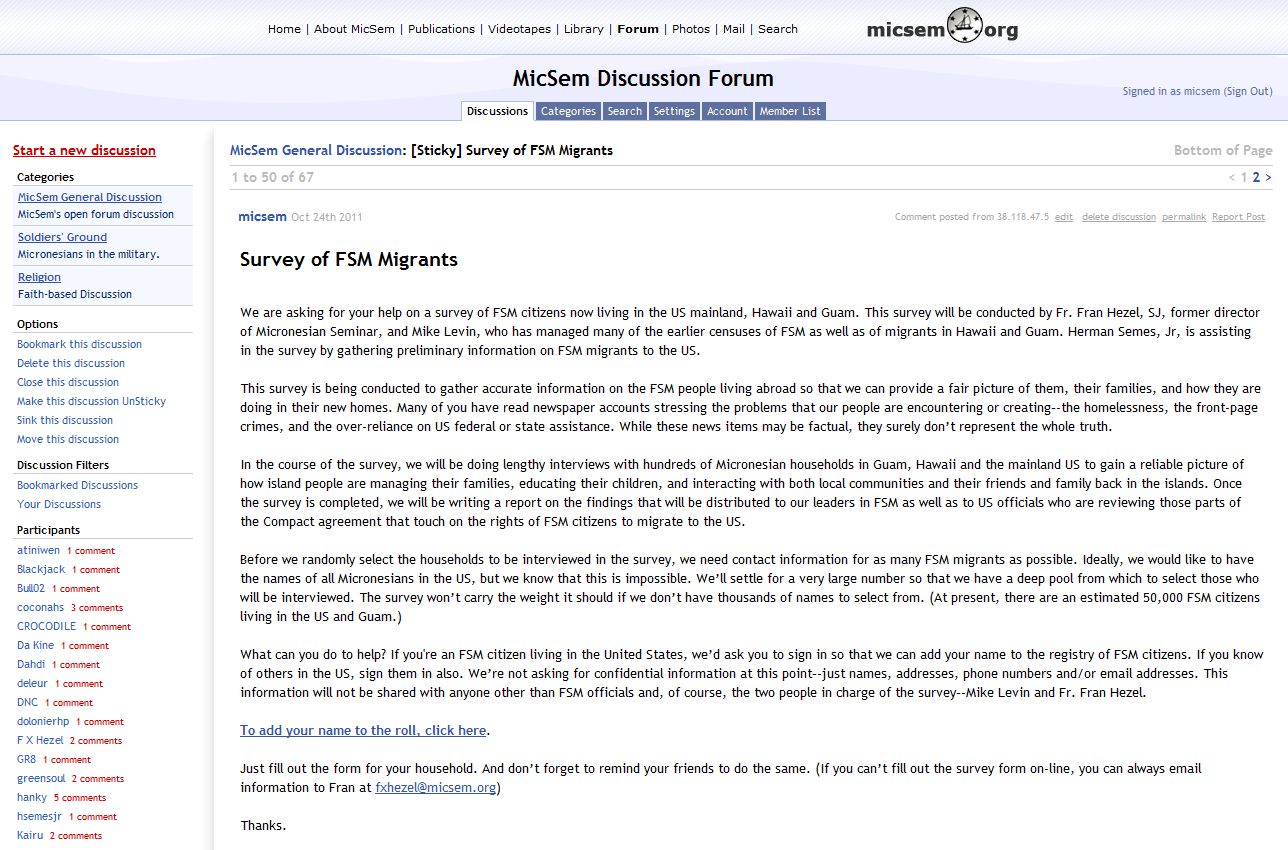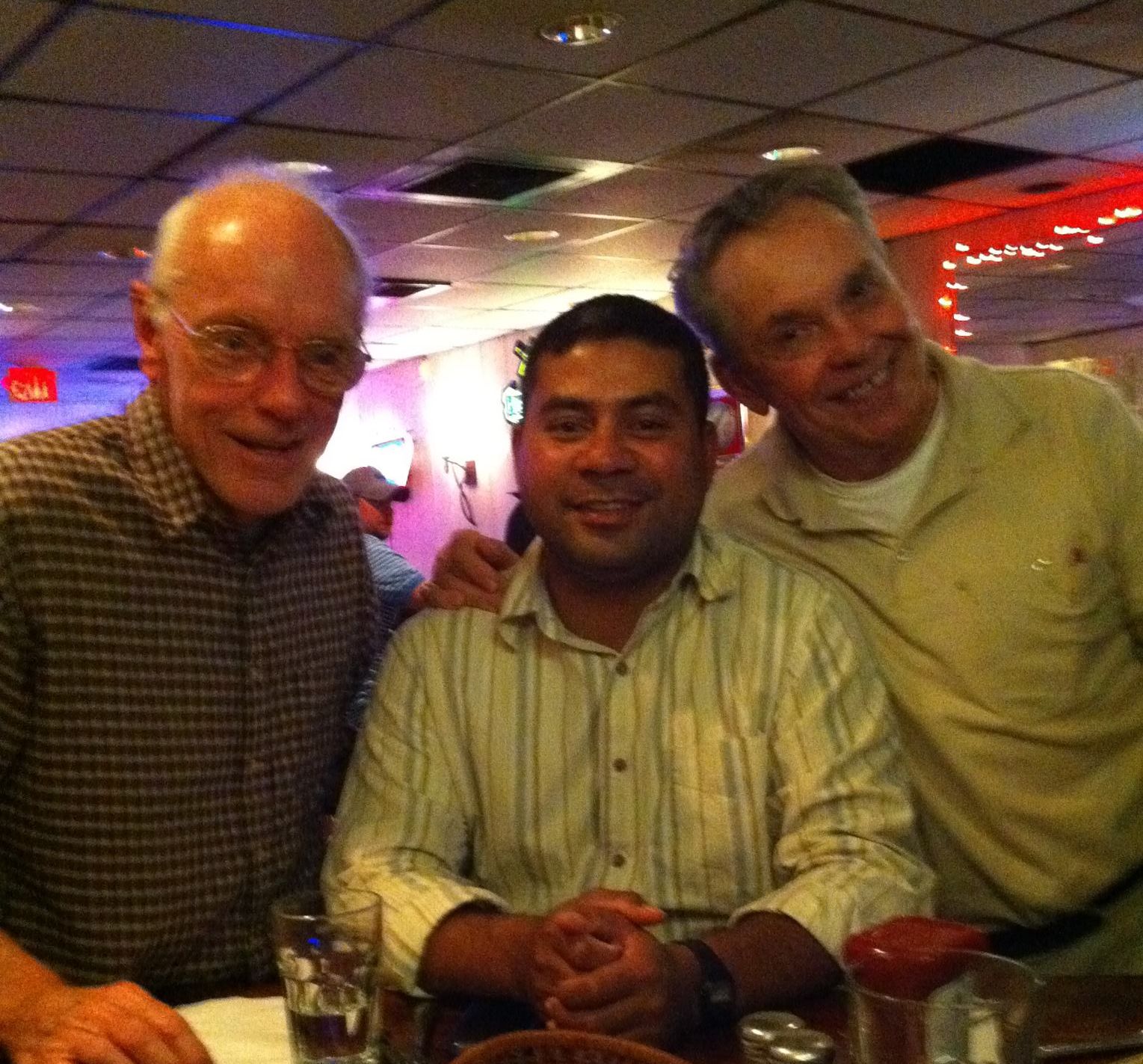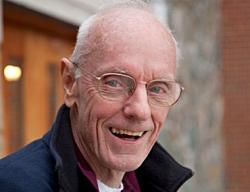The Internet & Changing Island Culture
Many years ago when I was a fresh young face in the islands, I was astonished at how seldom people disagreed with one another.? Not that I grew up in a neighborhood in which people screamed and cursed at one another all day long, but there certainly were minor arguments between people that sometimes spilled over in public.? Imagine my surprise when I came to Micronesia and found that no one seemed to disagree with anyone else… at least in public.? Where were the arguments, the minor debates, the give-and-take needed to get to the truth of the matter?? Everyone appeared willing to accept at face value whatever came out of another person?s mouth.
But that was before the Internet.? Now that we don?t have to look into one another?s eyes while we talk, island inhibitions seem to have vanished.? Protected by anonymity, a person is free to say anything at all on a public forum, however harmful or spiteful it might be.? Not only can we disagree with one another in public, but we can do it without any hint of the respect that has always been a hallmark of life in the islands.? We can afford to get in-your-face towards others, especially public officials, because we can see them but they can?t see us.? It?s easy to get used to slapping others in the face when they?re blindfolded.? They can?t see the blow coming and they don?t know who?s hitting them.
Cultures are always adapting their values to new circumstances.?Isn’t?it time that we worked out a way to retain the respect that has always been essential in island life to new modes of distance communication??? Is it too much to expect that island respect can be retained even in the age of anonymous Internet posting?? Or that free expression might coexist with sensitivity to the feelings of others?





